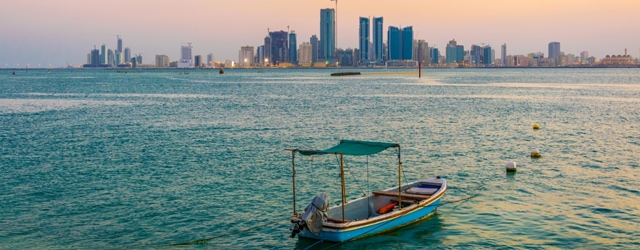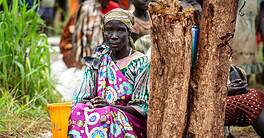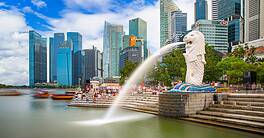After ratings downgrades a year ago, the Kingdom of Bahrain has worked to diversify revenue sources while maximizing the benefits of its strong relationship with Saudi Arabia.

As a small nation with fewer resources than its Gulf Cooperation Council neighbors, Bahrain has fewer funds available for job creation through construction projects. That makes its leaders work all the harder to create an appealing investment environment.
It’s not easy, though. Last March, Moody’s Investors Service downgraded Bahrain’s long-term issuer rating to Ba1 from Baa3 (the lowest investment grade) with a negative outlook and placed it on review for further downgrade, citing “the highly negative impact of the further sharp fall in oil prices, which Moody’s expects to remain low for several years,” as well as the government’s finances and economic performance. At $92.3 per barrel, Bahrain’s estimated fiscal break-even price for 2017 is higher than for most of its neighbors; but it cushions the gap by importing oil from Saudi Arabia, refining it and then exporting it.
Bahrain has also seen its status as an aviation and financial hub diminish in recent decades. To support development ambitions, Qatar, Abu Dhabi and Oman withdrew from Gulf Air ownership, leaving Bahrain the airline’s sole owner at a time of intensifying regional competition in aviation. Dubai worked to establish itself as a competing regional financial center, offering global connectivity, extensive infrastructure and social stability.
The Bahrain government has worked to increase the country’s appeal to foreign direct investors, according to Jarmo Kotilaine, chief economic advisor in market and strategy intelligence at the Bahrain Economic Development Board. In a report entitled Doing Business 2017: Equal Opportunity for All, the World Bank highlighted Bahrain’s reforms. They include reduction in capital requirement and streamlining procedures at the King Fahd Causeway, a 16-mile structure that connects Bahrain to Saudi Arabia. Kotilaine hopes to leverage Bahrain’s relaxation of foreign-ownership rules, which in many cases allow for 100% foreign ownership, as well as its streamlined company-registration process.
“There is work being done all the time to make the country more attractive as an investment destination and to make the process and modalities of investing easier,” he says in an interview from Manama. This has included focusing on subsectors of financial services, manufacturing, logistics and tourism, working on what Kotilaine calls the “infrastructure of promotion” by expanding the number of EDB offices and streamlining regulations.
Bahrain’s relationship with Saudi Arabia provides great advantages, according to Atif Kubursi, economics professor emeritus at McMaster University, president at Econometric Research, and a former acting executive secretary of the United Nations Economic and Social Commission. Besides supplying oil, the Saudis keep a military contingent there to help keep the peace, and the country’s economic and political stresses have not noticeably affected its relationship with Bahrain.
“It’s part of Saudi Arabia’s strategic space,” Kubursi explains. “The issue in Bahrain is that the majority of the people are Shia and they are ruled by a Sunni minority.” The Shia-Sunni divide, which affects many regional problems, continues to hang over Bahrain’s business and political environment.
|
Vital Statistics |
|
Location: Middle East: Gulf of Bahrain |
|
Neighbors: Saudi Arabia, Qatar |
|
Capital city: Manama |
|
Population (2016): 1,378,904 |
|
Official language: Arabic |
|
GDP per capita (2015): $22,600.20 |
|
GDP growth (2015): 2.9% |
|
Inflation (2015): 1.8% |
|
Currency: Bahraini Dinar |
|
Investment promotion agency: |
|
Investment incentives available? No special tax breaks; policy is to improve the investing environment overall. |
|
Ease of Doing Business rank (2016): 63 |
|
Corruption Perceptions Index rank (2016): 70 |
|
Political risk: Civil disturbances |
|
Security risk: Risk of terrorism |
|
PROS |
|
Highly diversified economy for a Gulf Cooperation Council country |
|
Some government and private investment funds available |
|
Cons |
|
Nighttime curfew on waterways; increased security presence |
Sources: CIA World Factbook; Gov.UK Travel Advice; International Monetary Fund; Transparency International; US State Department; World Bank



